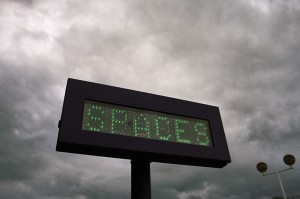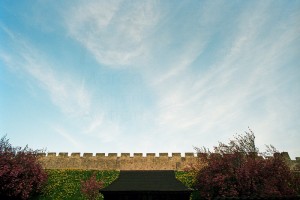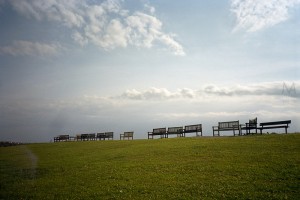Often the vocabulary is just the heritage of the culture and the things surrounding us. For example, “pizza” is spelled the same in English and in Italian, yet it means two very different things such as a food by-product in the former language and a fantastic experience involving all the senses in the latter.
It is not surprising then that a nefarious weather can create not only a whole vocabulary of terms around it (rain, showers, drizzle, etc), but also change the meaning of more common words related to it.

Perhaps out of the necessity of negating their sad reality, perhaps just because of the lack of comparison terms, the English transformed the meaning of “dark” and they sent into oblivion what it really meant.

England is very, very dark. Yes, sure, the English will promptly agree: their latitude is so higher above the rest of Europe that normally, out of Earthly geography matters, during winter the sun will set very soon and rise very late. Nothing can, of course, be done to change the sun’s course and, obviously, this unchangeable fate is shared by similarly positioned countries in the rest of the world.

At least, this is what the English understand.

Not so. England is dark in a different way. England is the darkest country during summer of all the Northern hemisphere. The sun motion on the sky has little to do with this, since even when it would be shining and high above us, a large, dense, thick layer of “clouds” shields it from us, and leaves us living in this dark country in… the dark, exactly.
No matter the month of the year and the position of the sun in the skies, this layer – that we cannot call cloud because the rest of the world means something different with this same word) – above us, extending from East to West and from South to North, leaves us below in a miserable obscurity.
What is a “cloud” then for the rest of the bright world? A cloud is something cute, pretty, white, floating individually in a blue sky. Nothing to worry about it. Clouds don’t leave people gasping for light, but English ones do.
So, it is not a chance that the word “dark” evokes pitiful concepts that nothing have to do with physical light, and it is because of the combination of these two meanings, literary and figurative, that I can sadly say I am leaving in the world’s darkest country.
